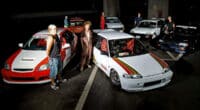The Scion tC is a well-rounded compact sports coupe that offers good value for its price; it comes with all the essential bells and whistles that you would need.
The quickly became popular due to its sleek design, reasonable price, and adequate performance. Its distinctive looks and customizable options were aimed at attracting a younger generation of buyers seeking a stylish yet practical ride.
Enthusiasts unanimously agree that the car’s lively engine and agile handling make it a fun daily driver and the spacious cabin only sweetens the pot.
So are these good cars? In this article, we’ll discuss some of the most common Scion tC problems, essential considerations, the best Scion tC year, recalls, and safety concerns.
Scion tC Specs and History
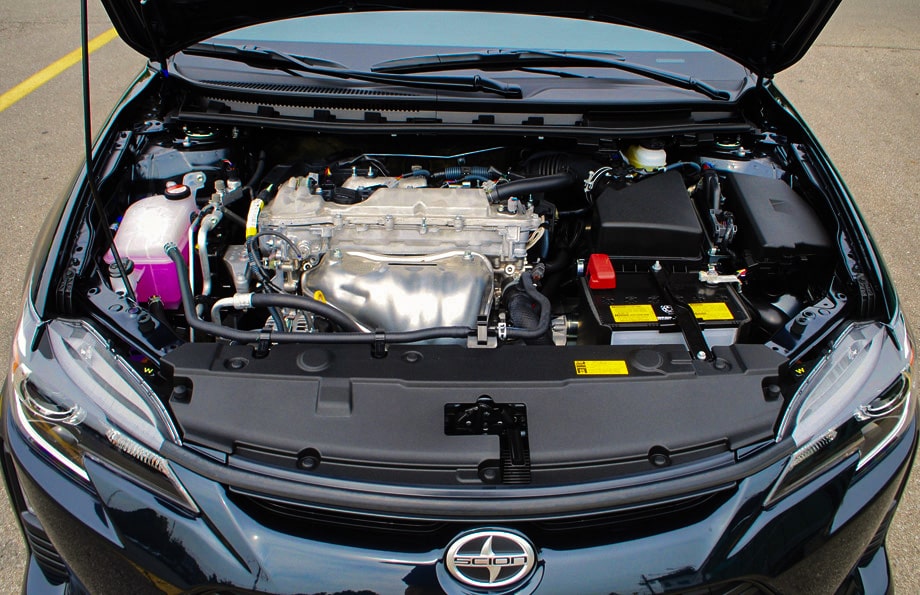
Production years: 2006 to 2016
Manufactured in: Japan
Body style: Coupe
Layout: Front-engine, rear-wheel-drive
Engine: 2.4L 4-cylinder 2AZ-FE
Power: 160 hp (1st gen), 180 hp (2nd-gen)
Torque: 152 lb-ft (1st gen), 173 lb-ft (2nd-gen)
Transmission: 6-speed manual, 4-speed automatic
Weight: 2,905 to 2,970 lbs (1st-gen), 3,090 to 3,160 lbs (2nd-gen)
Height: 55.7″
Width: 69.1″ (1st gen) / 70.7″ (2nd-gen)
Length: 174″
Ground clearance: 5.2″ to 6.3″
0-60 (s): 6.2 (2013)
Toyota introduced the Scion tC (touring coupe) in 2005 to appeal to younger generations.
Taking the AWD Avensis chassis as a base, they created the 1st-gen coupe, although it was powered at the rear wheels; the same goes for the 2nd-gen tC.
The 1st-gen tC, manufactured from 2005 to 2010, featured a 2.4L 4-cylinder AZ-FE engine with manual and automatic transmission options.
In 2010, the tC was redesigned, which resulted in a more angular appearance.
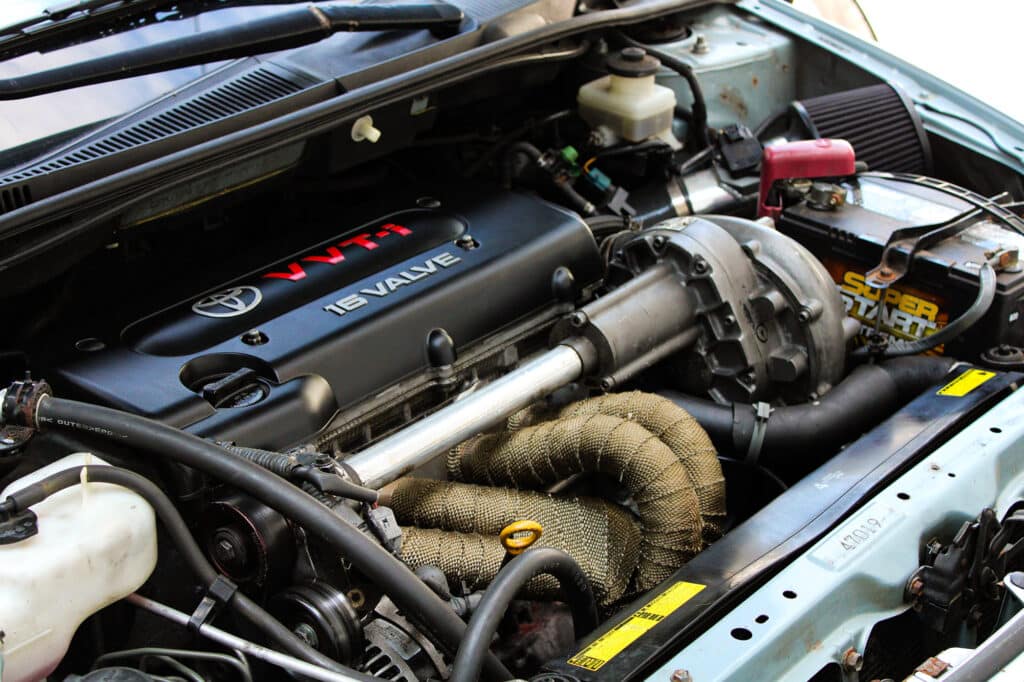
Additionally, it received a more robust 2.5L 2AR-FE engine. The 2nd-gen lasted until 2016 when Toyota phased out the Scion marque entirely.
It also stood out for its wide range of customization aftermarket parts such as Scion tC turbo kits, short ram or cold air intakes, headers, exhaust systems, etc.
Scion tC Reliability Review
The Scion tC’s reliability varies depending on the model year and effectively the engine.
Generally, the car is considered reasonably reliable, but it isn’t rare to find Scion tC complaints in enthusiast forums and at the National Highway Traffic Safety Administration (NHTSA).
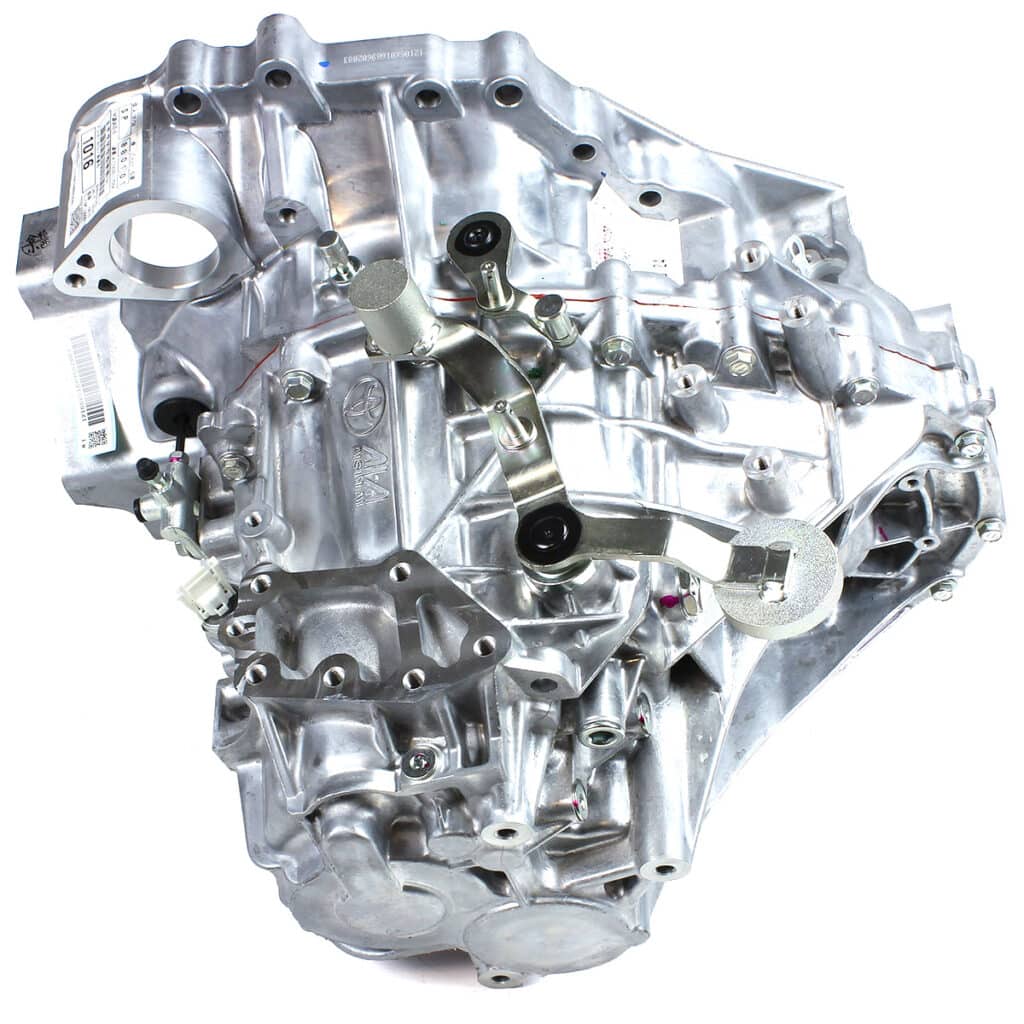
Some model years have experienced significant issues that resulted in recalls, including engine faults, brake hose failures, and problematic suspensions.
In terms of mechanical problems with significant safety implications, the 2006 Scion tC has the most NHTSA recalls, with five:
- Load Carrying Capacity Modification Labels (two recalls)
- Side and Curtain Shield Airbag System
- Airbag Inflator
- Glass Wind Deflector
However, critical scion tC years to avoid are 2015 and 2016. The reason is that although each model year has only three recalls, two are the most concerning regarding safety:
- Brake Hose may Rupture Causing Loss of Braking
- Improperly Tightened Rear Suspension
Excessive Oil Consumption
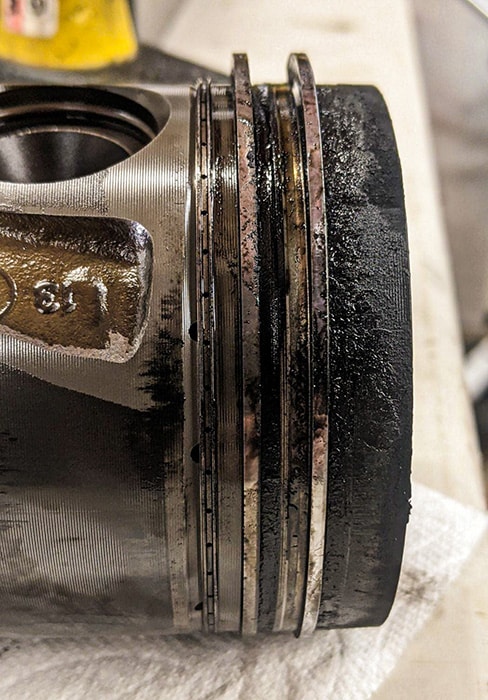
Although Scion tCs with over 150,000 miles still on the road, some owners have complained about excessive oil consumption, particularly with the 1st-gen.
Almost every model year of the tC has experienced this problem at some point. Some as early as 60,000 miles once the powertrain warranty has expired.
Owners have turned to the NHTSA and other sites to report excessive oil consumption, which will cause the oil warning light to come on and the engine to overheat, stall, or seize.
Drivers have extensively documented Scion tC oil consumption problems, like adding a quart of oil every 8000-1000 miles to keep the car running. Some owners claim to have spent over $3,000 to replace the engine.
Typically, faulty piston rings are the root cause of the Scion tC’s engine problems, paticularly oil consumption.
Although Toyota published a letter regarding this problem, no recall has been issued since it’s not considered a safety concern.
Flawed Transmission
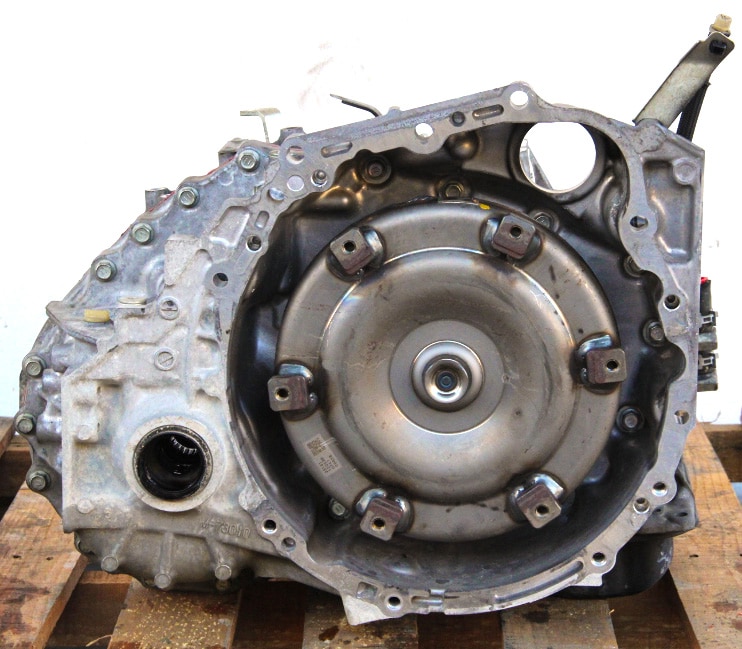
A problematic transmission can be annoying and make your daily commute stressful and unpleasant.
Unfortunately, the 1st-gen Scion tC has suffered multiple issues with the automatic transmission, including sudden acceleration in reverse and rolling backward.
Other owners have complained in Scion forums about their cars surging at low speeds, slipping gears, and excessive and unpredictable engine braking.
Other common complaints filed by Scion tC owners at NHTSA are hesitation to shift, rough shifting, and the shifter getting stuck in park.
If you’re in the market for a first-gen automatic Scion tC, chances are your prospective car will have transmission issues.
Unfortunately, Toyota never recalled the Scion tC to fix the torque converter and transmission fluid pump, which are the usual culprits of most of the Scion’s transmission problems.
Bad Clutch
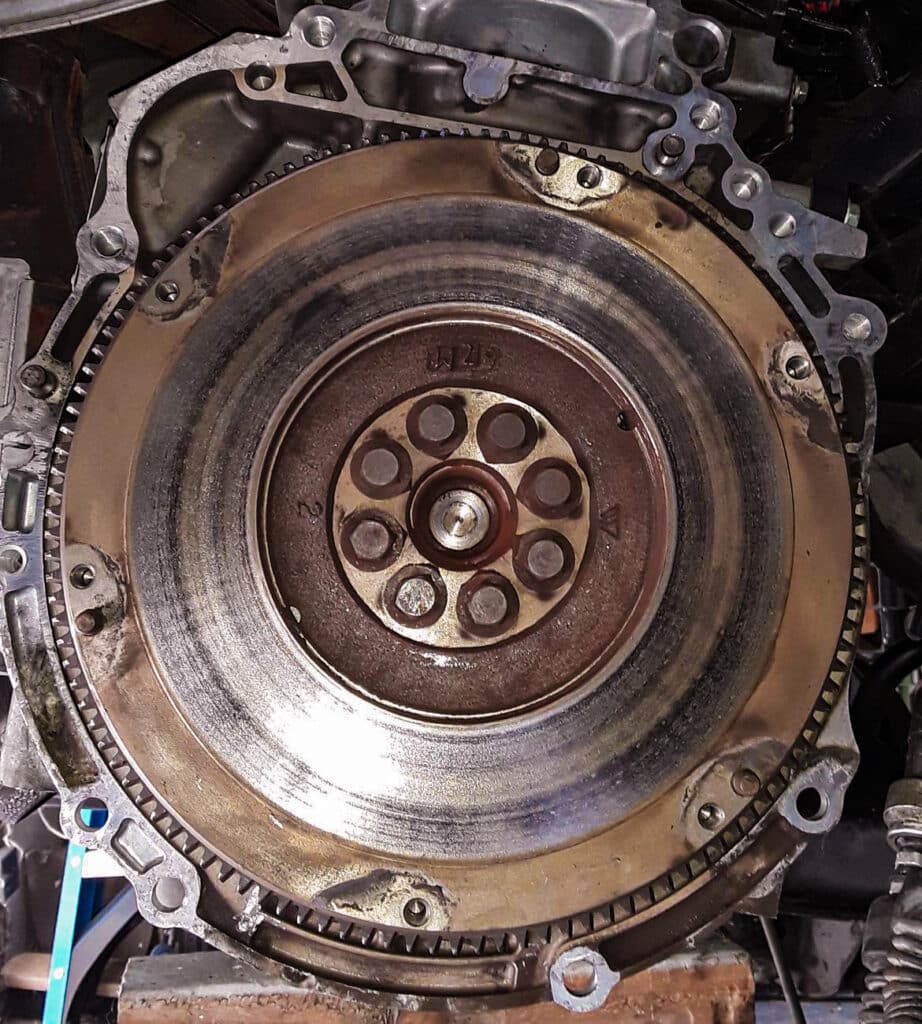
Manual Scion owners are also familiar with transmission problems due to faulty clutches. Drivers have complained about the clutch pedal getting stuck or going all the way down to the floor.
Although, in some instances, they can still shift. A leaky clutch line or a bad master cylinder typically causes this.
In other cases, these clutch problems will prevent the car from shifting or releasing the gears. Like automatic Scions, clutch issues are more common in their 1st-gen, but the 2nd-gen isn’t trouble-free.
Some 2011-2013 Scion tC owners have complained about a growling noise with the clutch pedal released caused by faulty input shaft rear bearings.
Scion issued a technical service bulletin addressing this problem since Toyota’s powertrain warranty covers the repair.
Brake Hose Failures

One serious problem that has raised safety concerns among 2nd-gen Scion tC owners is the constant failure of brake hoses.
This has been an ongoing problem in the Scion tC years 2011-2016. So avoid these years like the plague. Since this period, all of them have had at least one recall.
Toyota, who makes the Scion tC, recalled specific Toyota Racing Development (TRD) brake kits since these tend to fatigue and fail, causing loss of braking, thus increasing the risk of a crash.
It replaced them with standard equipment brake kits, free of charge.
Faulty Starter
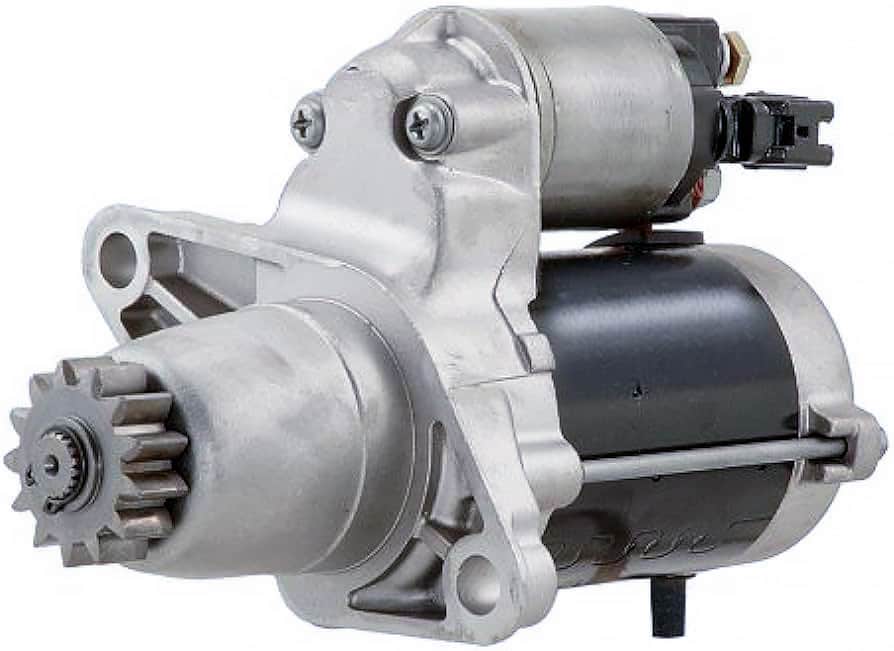
Scion tC starter problems typically include noises and the engine not cranking or starting.
Some drivers claim to hear a high-pitched whirring sound, which may indicate that the starter is turning but not contacting the flywheel.
When diagnosing a faulty starter on a Scion tC, there are several additional things to consider:
- One indicator of a problem is if the starter is making a clicking noise, which could suggest that the starter solenoid is not engaging correctly.
- Another sign to watch for is a grinding noise from the starter, which may indicate that the starter pinion gear is not correctly meshing with the flywheel ring gear.
- Lastly, if you notice smoke coming from the starter, this could be a sign of overheating or the starter windings burning out.
Verdict

As with any other used car, the reliability of a Scion tC largely depends on how well previous owners took care of the vehicle.
Therefore, it’s paramount to know the car’s history through maintenance and repair records to ensure any previous or potential problems are addressed, especially if your prospective Scion was part of a Toyota recall.
Still, mechanical problems are always probable, some with serious safety implications. It’s best to do thorough research before pulling the trigger on one of these models.
The Scion tC can be among the best tuner cars because of its decent performance, amenities, and customization options, but we wouldn’t recommend it for daily driving. Other vehicles offer better reliability and safety ratings.

